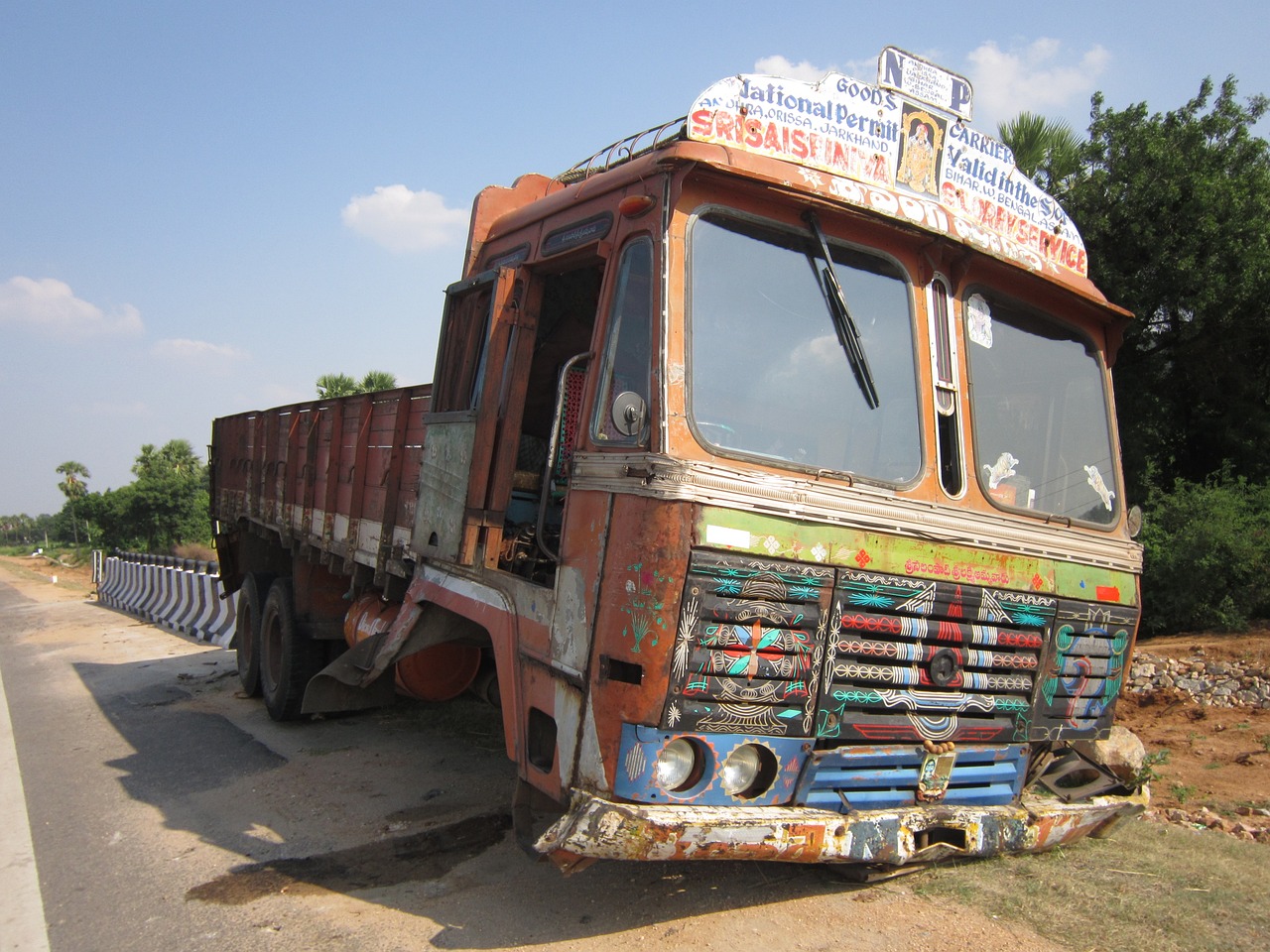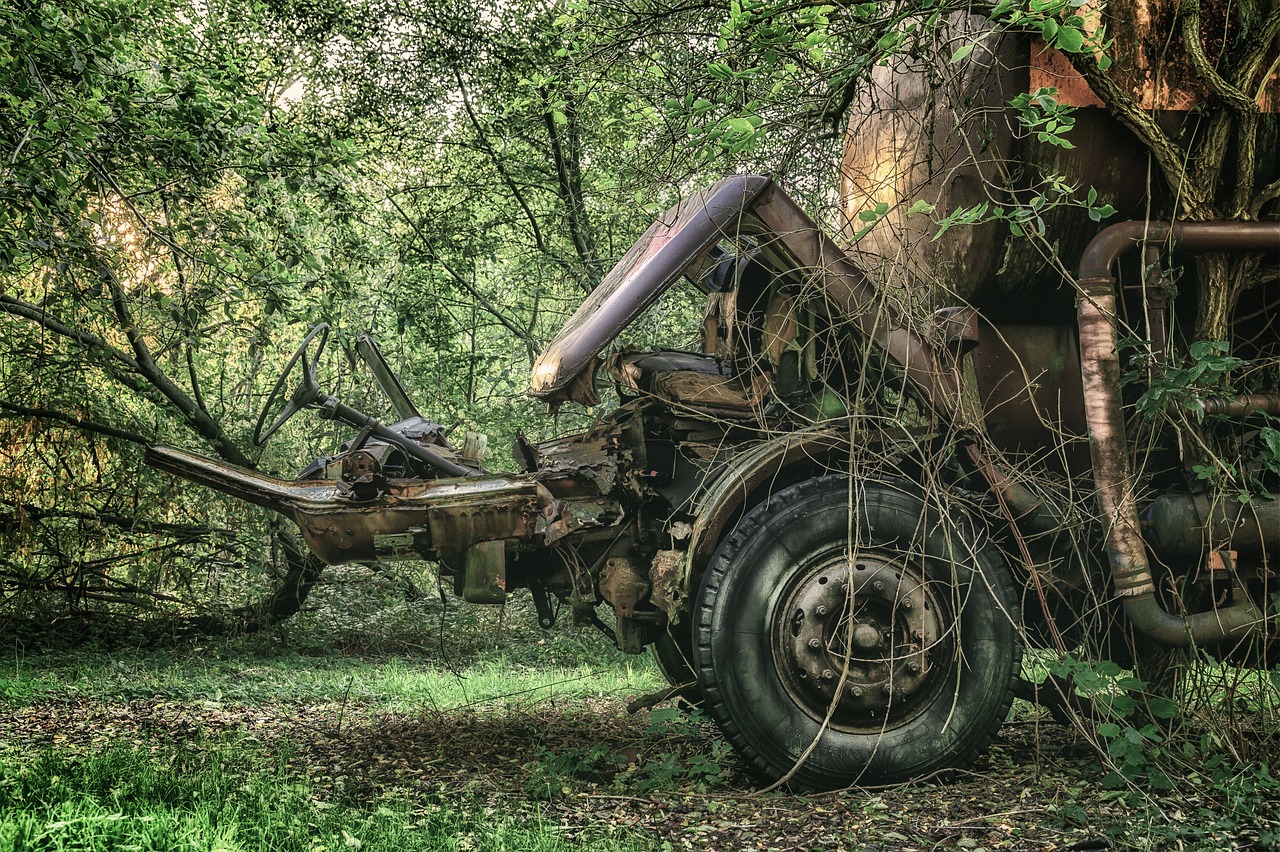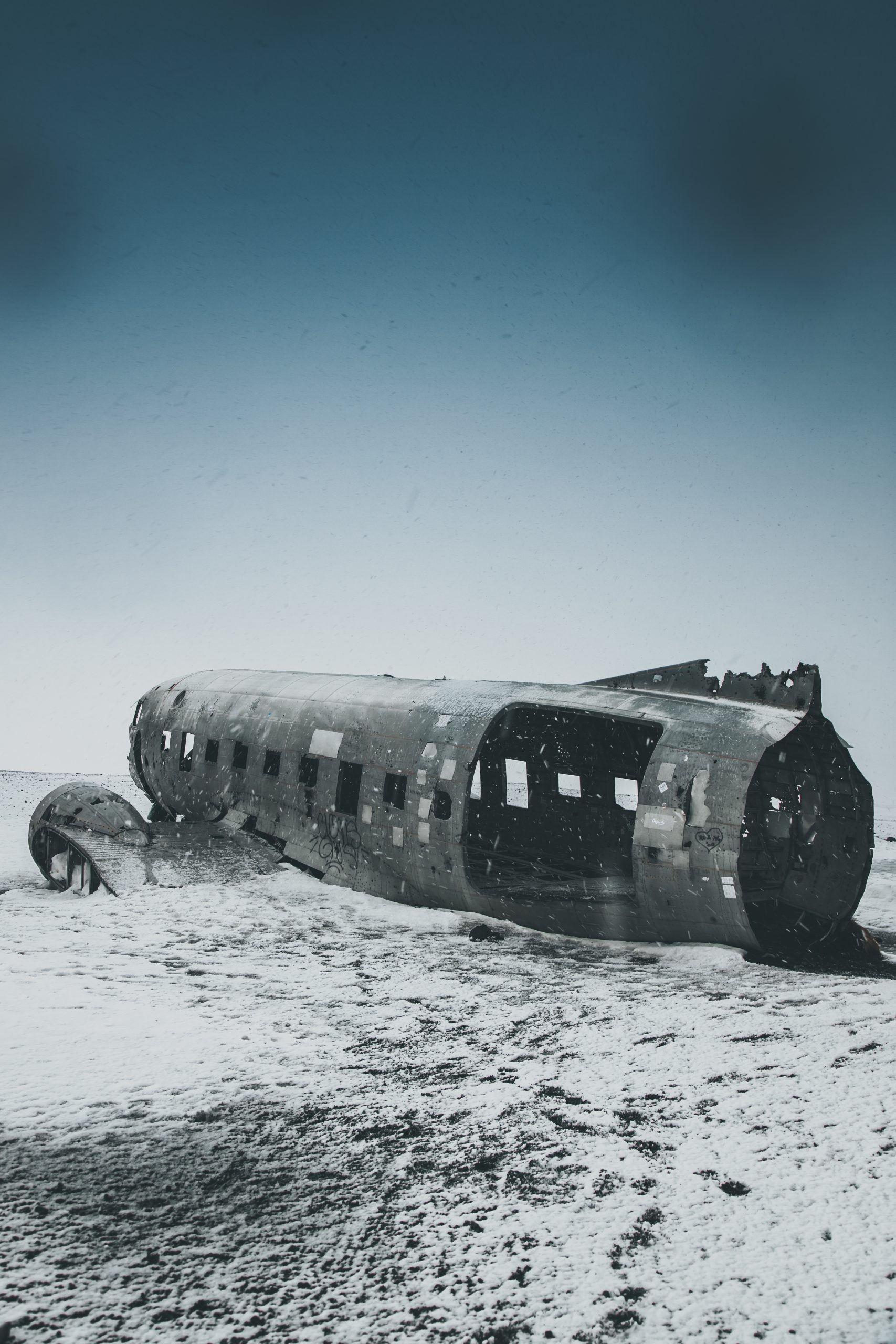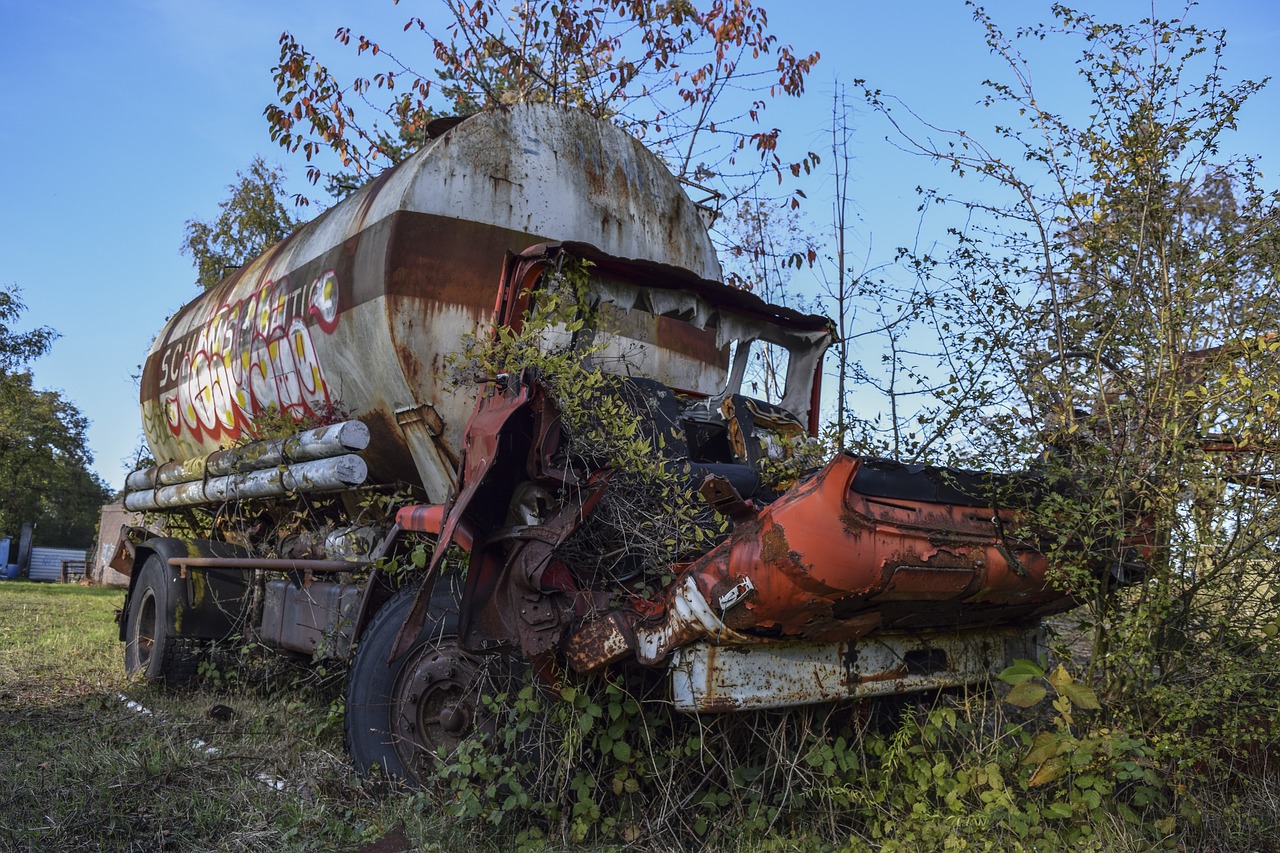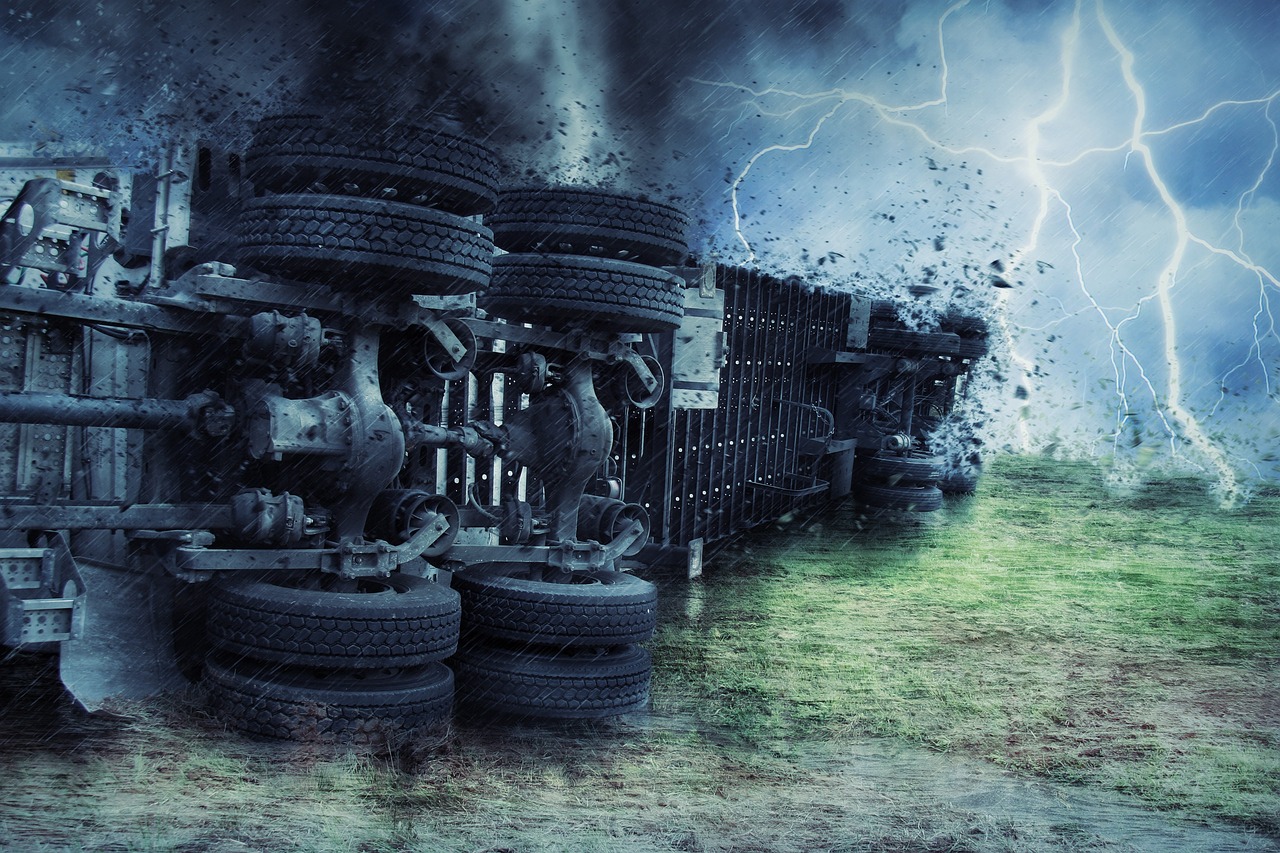Are you or a loved one facing the aftermath of a trucking accident in Centerville, Utah? Dealing with the physical, emotional, and financial consequences of such an incident can be overwhelming. That’s where a skilled and experienced truck accident lawyer comes in. With their expertise, they can help navigate the complex legal system and work tirelessly to secure the compensation you deserve. Whether it’s medical expenses, lost wages, or pain and suffering, a dedicated truck accident lawyer in Centerville, Utah, can fight for your rights and help you rebuild your life. Contact them today for a consultation and let them guide you towards justice and peace of mind.
Causes of Truck Accidents
Truck accidents can have devastating consequences, causing severe injuries and even fatalities. It is important to understand the common causes of these accidents in order to prevent them and to hold the responsible parties accountable. Here are some of the primary causes of truck accidents:

Distracted Driving
Distracted driving is a leading cause of all types of motor vehicle accidents, including truck accidents. When a truck driver takes their attention away from the road, even for a split second, the results can be catastrophic. Common distractions for truck drivers include texting or talking on the phone, eating or drinking, using GPS devices, and even just daydreaming. It is vital for truck drivers to remain focused on the task at hand in order to avoid accidents.
Fatigue
Truck drivers often work long hours and may experience fatigue as a result. The combination of fatigue and the size and weight of a truck can be a recipe for disaster. Fatigue can impair a driver’s judgment, reaction time, and overall ability to operate a vehicle safely. Federal regulations limit the number of hours a truck driver can be on the road without rest, but unfortunately, some drivers and companies may ignore these regulations, putting everyone on the road at risk.
Overloading
When a truck is overloaded with cargo, it becomes more difficult to control and maneuver safely. The weight distribution may become imbalanced, making it more likely for the truck to tip over or experience other accidents. Overloaded trucks also require longer stopping distances, which can increase the risk of rear-end collisions and other accidents. Truck companies have a responsibility to properly load and secure cargo to prevent accidents caused by overloading.
Speeding
Speeding is a common cause of all types of accidents, and truck accidents are no exception. Trucks require more time and distance to come to a complete stop due to their size and weight. When a truck is traveling at an excessive speed, the risk of an accident occurring increases significantly. Speeding can also make it more difficult for a truck driver to control the vehicle, especially in adverse weather conditions or when navigating curves in the road.
Drunk Driving
Driving under the influence of drugs or alcohol is extremely dangerous and illegal. Unfortunately, some truck drivers may engage in this reckless behavior, putting themselves and others at risk. Alcohol and drugs impair judgment, coordination, and reaction time, all of which are essential for safe driving. Truck drivers have a responsibility to operate their vehicles free from the influence of alcohol or drugs.
Types of Truck Accidents
Truck accidents can take various forms, each with its own set of dangers and potential consequences. Understanding these types of accidents can help victims and their families seek the appropriate legal recourse and compensation. Here are some common types of truck accidents:
Rear-end Collisions
Rear-end collisions occur when a truck crashes into the back of another vehicle. These accidents can result from a variety of factors, such as distracted driving, speeding, or stopping abruptly. Due to the size and weight disparity between trucks and passenger vehicles, rear-end collisions involving trucks can cause severe injuries or death.
Jackknife Accidents
Jackknife accidents occur when the trailer of a truck swings out to the side, forming a V shape with the cab of the truck. This can occur when the truck driver brakes suddenly or loses control due to factors like slippery road conditions or excessive speed. Jackknife accidents can pose a significant danger to other vehicles on the road, as the truck may block multiple lanes or even roll over.
Underride Accidents
Underride accidents happen when a smaller vehicle slides under the rear or side of a truck, often due to the truck suddenly stopping or changing lanes. These accidents can be catastrophic, as they often result in the smaller vehicle being completely crushed or sheared off. Underride accidents frequently lead to severe head injuries, decapitation, or even death.
Tire Blowouts
Tire blowouts can occur when a truck’s tires are not properly maintained or experience excessive wear and tear. When a tire blows out, it can cause the truck driver to lose control, leading to a serious accident. Additionally, tire debris from blowouts can also pose hazards to other vehicles on the road.
Rollover Accidents
Rollover accidents involve a truck tipping over onto its side or roof. These accidents can be due to a variety of factors, including excessive speed, sharp turns, or uneven road conditions. Rollover accidents are particularly dangerous because they can result in the truck colliding with other vehicles or objects, causing significant damage and injuries.
Truck Accident Injuries
Truck accidents can result in a wide range of injuries, some of which can have long-term or even permanent effects on the victim’s life. It is important for victims to understand the potential injuries they may suffer in order to seek the appropriate medical treatment and pursue fair compensation. Here are some common injuries resulting from truck accidents:
Whiplash
Whiplash is a common injury that occurs when the head and neck are forcefully and suddenly jerked back and forth. This can happen during a truck accident when there is a sudden impact or rapid deceleration. Symptoms of whiplash may include neck pain and stiffness, headaches, dizziness, and difficulty concentrating. While whiplash is generally considered a minor injury, it can still cause significant pain and discomfort.
Broken Bones
Truck accidents can generate tremendous force, resulting in fractures and broken bones. Victims may suffer broken limbs, ribs, or facial bones, depending on the specific circumstances of the accident. Fractures can be extremely painful and may require surgery, immobilization, and rehabilitation. In severe cases, multiple fractures or injuries to vital organs can be life-threatening.
Head and Brain Injuries
Head and brain injuries can occur when a person’s head strikes a hard surface during a truck accident. Traumatic brain injuries (TBIs) can range from mild concussions to severe brain damage. Symptoms may include headaches, dizziness, memory loss, changes in mood or behavior, and difficulty with speech or coordination. Brain injuries may have long-term consequences and can significantly impact a person’s ability to work or enjoy daily activities.
Spinal Cord Injuries
Truck accidents can cause devastating spinal cord injuries, such as herniated discs, fractures, or complete paralysis. These injuries can result in loss of sensation or movement in various parts of the body and may require extensive medical treatment, rehabilitation, and lifelong care. Spinal cord injuries often have a profound impact on a person’s independence and quality of life.
Internal Injuries
Truck accidents can also cause internal injuries that may not be immediately apparent but can be life-threatening if left untreated. Internal injuries may involve damage to vital organs, such as the liver, spleen, or internal bleeding. Prompt medical attention is necessary to diagnose and treat these injuries. Failure to identify and address internal injuries can have serious consequences, including organ failure or death.
Liability in Truck Accidents
Determining liability in truck accidents is crucial to pursuing a personal injury claim and seeking compensation for your injuries and damages. Depending on the specific circumstances of the accident, several parties may bear responsibility. Here are some potential parties that may be held liable in a truck accident:
Truck Driver
The truck driver is often the first party to be considered when determining liability in a truck accident. If the driver was engaged in negligent behavior, such as speeding, drunk driving, or distracted driving, they may be held accountable for the resulting injuries and damages. It is important to note that even if the driver is an employee, their employer can still be held vicariously liable for their actions.
Truck Owner/Company
The truck owner or the company that operates the truck may also be held liable for a truck accident. If the owner or company failed to properly maintain the truck, ensure the driver was properly qualified and trained, or address any known safety issues, they may be considered negligent. Holding the truck owner or company accountable can help ensure that they take the necessary steps to prevent future accidents.
Manufacturer/Repairer
In some cases, a truck accident may be caused by a defect in the truck or one of its components. If a manufacturing or design defect contributed to the accident, the manufacturer of the truck or the specific defective part may be held liable. Similarly, if a repair shop or mechanic failed to properly repair or maintain the truck, they may also bear responsibility for any resulting accidents.
Government Agencies
Government agencies responsible for maintaining and designing roads and highways may be held liable for a truck accident if their negligence contributed to the crash. This can include issues such as poor signage, inadequate road maintenance, or failure to address known hazards. Claims against government entities, however, often involve complicated legal processes and shorter deadlines, so it is important to consult an experienced attorney.
Third Parties
Truck accidents can also involve other parties that may contribute to the accident and subsequent injuries. For example, a loading company or cargo shipper may be held liable if the cargo was improperly loaded or secured, leading to the accident. Additionally, if another driver’s negligence caused or contributed to the truck accident, they may also share in the liability.
Investigating a Truck Accident
After a truck accident, it is crucial to thoroughly investigate the incident in order to establish liability and gather evidence for a personal injury claim. Here are some key steps that should be taken during the investigation process:
Preserving Evidence
Preserving evidence is essential in any personal injury case, including truck accidents. This can involve taking photographs of the accident scene, the vehicles involved, and any visible injuries. It may also include obtaining any available surveillance footage or witness statements. It is important to act quickly, as evidence can be lost or destroyed over time.
Examining Driver Logs
Truck drivers are required to keep detailed logs of their driving hours and rest breaks to comply with federal regulations. These logs can provide valuable information regarding the driver’s actions leading up to the accident, including whether they had been driving beyond the allowed time limit or were fatigued. Examining these logs can help establish negligence on the part of the driver or their employer.
Reviewing Maintenance Records
Truck companies have a responsibility to properly maintain their vehicles. Reviewing maintenance records can help determine whether the truck had any mechanical issues or if it was improperly maintained, which could have contributed to the accident. Inadequate maintenance can be indicative of the company’s negligence in maintaining a safe fleet of trucks.
Obtaining Black Box Data
Many trucks are equipped with data recording devices, commonly known as “black boxes,” which record important information such as speed, braking, and other operational data. This data can be crucial in reconstructing the accident and determining if any violations or reckless actions occurred. It is important to take legal action quickly to ensure that this data is not lost or overwritten.

Interviewing Witnesses
Interviewing witnesses who saw the accident occur or have relevant information can provide valuable testimony to support your case. Witness statements can corroborate your version of events and help establish liability. It is important to gather witness information as soon as possible, as memories can fade over time.
Comparative Negligence in Truck Accidents
In some truck accidents, multiple parties may bear some level of responsibility for the incident. Comparative negligence is a legal principle that determines how damages are distributed when both the plaintiff and the defendant share fault. Here are some key points to understand about comparative negligence in truck accidents:
Understanding Comparative Negligence
Comparative negligence compares the fault of each party involved in an accident when determining liability and damages. Under this principle, compensation may be adjusted based on the degree of fault assigned to each party. For example, if the court determines that the plaintiff was 20% at fault for the accident, their compensation may be reduced by 20%.
Proving Negligence
To successfully prove negligence in a truck accident, you must establish that the other party breached their duty of care, their breach directly caused your injuries, and you suffered damages as a result. This may involve gathering evidence such as accident reports, witness statements, medical records, and expert testimony.
Determining Percentage of Fault
The percentage of fault assigned to each party can vary based on the specific circumstances of the accident. It is up to the court or jury to assess the evidence and determine the degree of fault. Having an experienced attorney on your side can help present a strong case and argue for a fair assessment of fault.
Impact on Compensation
In cases of comparative negligence, the compensation awarded to the injured party may be reduced based on their percentage of fault. For example, if you were found to be 25% at fault for the accident and were awarded $100,000 in damages, your final compensation would be reduced to $75,000.
Seeking Legal Representation
Given the complexity of comparative negligence cases, it is crucial to seek the guidance of an experienced truck accident lawyer. They can assess the facts of your case, gather evidence, negotiate with insurance companies, and advocate for your best interests in court. Legal representation can help ensure you receive fair compensation despite any assigned percentage of fault.
Compensation in Truck Accident Cases
If you have been injured in a truck accident, you may be entitled to compensation for the damages you have suffered. Compensation can help cover medical expenses, lost wages, pain and suffering, property damage, and more. Here are some types of compensation commonly pursued in truck accident cases:
Medical Expenses
Truck accidents often result in severe injuries that require immediate medical attention and ongoing treatment. Compensation can help cover medical expenses such as hospital bills, surgeries, doctor visits, prescription medications, physical therapy, and rehabilitation.
Lost Wages
Being injured in a truck accident can prevent you from working, resulting in lost income and financial instability. Compensation can help replace the wages you would have earned during your recovery period, as well as any future lost earning capacity caused by your injuries.

Pain and Suffering
Truck accidents can cause physical pain, emotional distress, and mental anguish. Compensation for pain and suffering seeks to provide financial relief for the non-economic damages you have experienced as a result of the accident, such as physical pain, anxiety, depression, or loss of enjoyment of life.
Property Damage
Truck accidents can result in significant damage to vehicles and personal property. Compensation can help cover the costs of repairing or replacing your damaged vehicle, as well as any other personal property that was damaged in the accident.
Wrongful Death Damages
In the tragic event that a truck accident results in the death of a loved one, surviving family members may be eligible to seek compensation through a wrongful death lawsuit. Wrongful death damages can include funeral and burial expenses, loss of financial support, loss of companionship, and other related costs.
It is important to consult with an experienced truck accident lawyer to accurately assess the damages you have suffered and effectively pursue the compensation you deserve.
Statute of Limitations for Truck Accidents
In Utah, there is a time limit, known as the statute of limitations, within which you must file a lawsuit after a truck accident. If you fail to file your lawsuit within the specified time period, you may be forever barred from seeking compensation for your injuries and damages. Here is some important information regarding the statute of limitations for truck accidents in Utah:
Utah’s Statute of Limitations
In Utah, the statute of limitations for personal injury cases, including truck accidents, is generally four years from the date of the accident. However, it is important to consult with an attorney to understand the specific deadlines that may apply to your case.
Filing a Lawsuit on Time
To ensure compliance with the statute of limitations, it is crucial to commence legal action within the specified time period. This involves filing a complaint with the appropriate court and properly serving the defendant(s) with notice of the lawsuit. Failure to meet these deadlines can result in the dismissal of your case.
Exceptions to the Statute of Limitations
There are certain exceptions that may allow for an extension of the statute of limitations in specific circumstances. For example, if the victim is a minor or mentally incapacitated, the statute of limitations may be tolled, or temporarily paused, until they reach legal adulthood or regain mental capacity.
Importance of Acting Quickly
It is important to understand that time is of the essence when it comes to truck accident cases. Evidence can disappear, witnesses’ memories can fade, and vital documents can be lost over time. Acting quickly after a truck accident allows your attorney to gather and preserve crucial evidence and build a strong case on your behalf.
Consulting with a Truck Accident Lawyer
If you have been involved in a truck accident, it is in your best interest to consult with an experienced truck accident lawyer as soon as possible. They can assess the specific details of your case, investigate the accident, and guide you through the legal process. By acting promptly, you can protect your rights and maximize your chances of receiving fair compensation.
Choosing the Right Truck Accident Lawyer
Selecting the right truck accident lawyer is essential to ensuring that your rights are protected and that you have the best possible chance of receiving fair compensation for your injuries and damages. Here are some factors to consider when choosing a truck accident lawyer:
Experience and Expertise
Look for a lawyer who specializes in personal injury law, particularly in the area of truck accidents. An experienced lawyer will have the knowledge, skills, and resources to effectively handle your case and navigate the complexities of truck accident litigation.
Track Record of Success
Review the lawyer’s track record of success in handling truck accident cases. Look for evidence of significant verdicts or settlements obtained on behalf of clients. A lawyer with a strong track record of success is more likely to have the expertise and dedication necessary to achieve a favorable outcome for your case.
Client Testimonials
Reading client testimonials and reviews can provide insights into the quality of service provided by a lawyer. Look for positive reviews that mention the lawyer’s competence, communication skills, and commitment to their clients’ best interests.
Fee Structure
Discuss the lawyer’s fee structure during your initial consultation. Most personal injury lawyers work on a contingency fee basis, which means they only collect a fee if they successfully recover compensation for you. Understanding the fee arrangement upfront will help you avoid any surprises and ensure that you are comfortable with the terms.
Personal Connection
Lastly, trust your instincts and choose a lawyer with whom you feel comfortable. Effective communication and a strong attorney-client relationship are crucial to the success of your case. You need a lawyer who understands your concerns, answers your questions, and fights for your rights.
By carefully considering these factors, you can choose a truck accident lawyer who is best suited to handle your case and advocate for your interests.
Frequently Asked Questions: Truck Accidents
Here are some frequently asked questions about truck accidents, along with brief answers to help provide clarity on the topic:
What should I do immediately after a truck accident?
After a truck accident, it is important to prioritize your safety and well-being. Seek medical attention for any injuries, call the police to report the accident, and gather evidence if it is safe to do so. Take photographs, obtain witness statements, and exchange information with the other parties involved. Contact a truck accident lawyer as soon as possible for guidance on your legal rights and options.
How long do I have to file a lawsuit after a truck accident?
In Utah, the statute of limitations for personal injury cases, including truck accidents, is generally four years from the date of the accident. However, it is important to consult with a truck accident lawyer to understand the specific deadlines that may apply to your case.
Can I sue for compensation even if I was partially at fault for the accident?
Utah follows the doctrine of comparative negligence, which means that you can still seek compensation for your injuries and damages even if you were partially at fault for the accident. However, your compensation may be reduced based on the percentage of fault assigned to you.
What damages can I claim in a truck accident case?
You may be able to claim various damages in a truck accident case, including medical expenses, lost wages, pain and suffering, property damage, and wrongful death damages, if applicable. Consult with a truck accident lawyer to determine the specific damages you may be entitled to based on your circumstances.
Why do I need a truck accident lawyer?
A truck accident lawyer can provide invaluable assistance throughout the legal process. They can investigate the accident, gather evidence, negotiate with insurance companies, and advocate for your rights in court. By hiring a lawyer, you increase your chances of obtaining fair compensation for your injuries and damages.























